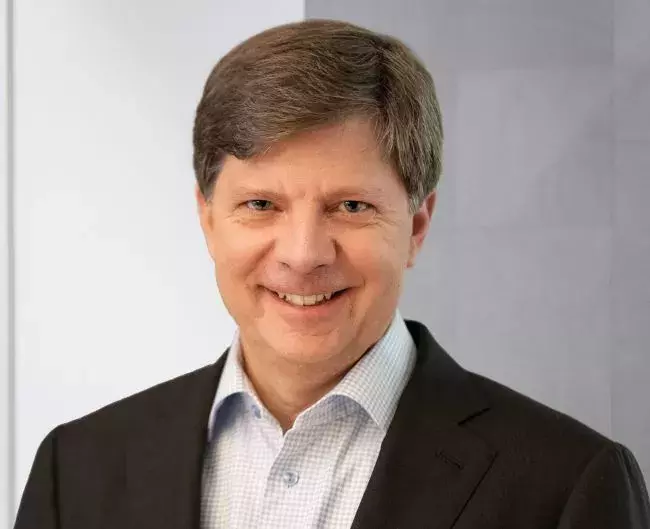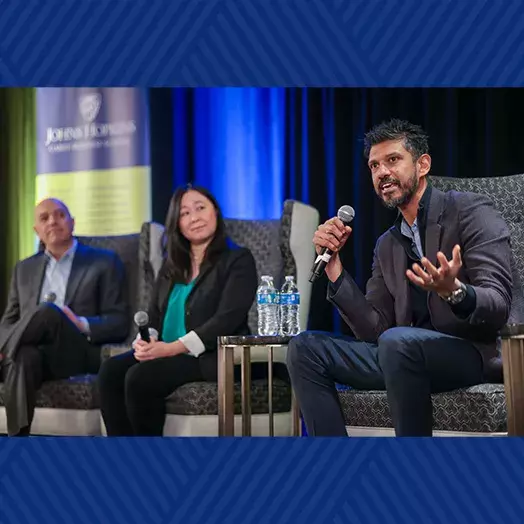Jeff Olson (REI ’01) values mentorship as a crucial element in his real estate career.

An alumnus’ commitment to building a community
Jeff Olson (REI ’01) is a big believer in mentorship.
Olson is chair and chief executive officer of Urban Edge Properties, a New York Stock Exchange- listed real estate investment trust specializing in managing, acquiring, developing, and redeveloping older retail real estate. The $4 billion company has properties ranging from Washington, D.C. up to Boston, MA. Some of his daily responsibilities include spending time on acquisitions, managing employees, and speaking with investors and constituencies.
But before this, he was learning his way up through the industry, like so many others, and he knew he needed something more than just what he found in the office.
Mentee turned mentor
Olson began his career in an entry level position working on the financial side of real estate. Knowing he wanted more, he began to look at graduate real estate programs.
He chose Johns Hopkins Carey Business School because the part-time Real Estate and Infrastructure program let him work while earning his degree, and he knew the network of real estate professionals within the program would provide him with connections for his future. The real estate industry is a relationship-driven business and having a mentor can provide you with invaluable information to help you succeed.
“Having classmates that were outside my area of expertise allowed me to network and surround myself with a cohort of architects, lawyers, designers, and sales agents.” Olson said. “It was an opportunity for me to not only become friends with my classmates but learn so much out of my realm.”
He looked to his mentors to aid in the process. As seasoned professionals, they offered guidance and shared industry insight that could help Olson position himself and his company for greater success.
“I owe a lot to Carey because Carey allowed me to meet so many different people through the program that helped mentor me throughout my career. Now being in a position where I can give back, I want to help students who are interested in being mentored and provide them with the same experience I had,” he said.
His mentorship ranges from one-on-one discussions to constructive conversations to help push students in the right direction. Olson says that finding a good mentor who takes the time to invest in you will give you the confidence to grow in the industry and succeed as a professional.
The 2022 Johns Hopkins University Alumni Association Distinguished Alumnus Award honoree is also the chair of Carey’s Real Estate and Infrastructure Advisory Board. He has also spoken at numerous Carey panels and commits significant philanthropy back to Carey to support the academic program.
What’s next in real estate
Olson says the real estate industry is one of the most exciting places to be, where the work to improve communities can mean more jobs, more housing options, and a communal culture that can last generations. Property owners and developers are looking for a way to build residences, shopping, work, and play all in the same area.
“It’s an opportunity to take older, outdated malls or strip centers and revitalize them by offering a mix of integrated services,” he said.
Olson said sustainability in real estate is important, as the industry and its customers focus on environmental, social, and corporate governance principles, commonly referred to as ESG.
“We are putting efforts into conserving energy and water, and improving waste management systems across our portfolio,” he said.
To date, Urban Edge Properties has reduced its natural gas use by 52 percent, reduced electricity use by 25 percent, and invested $40 million in energy-efficient roofing.


